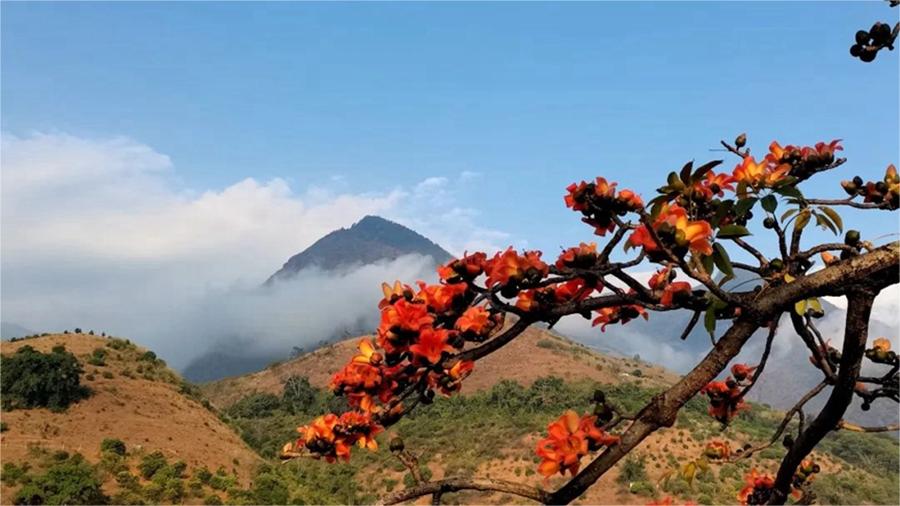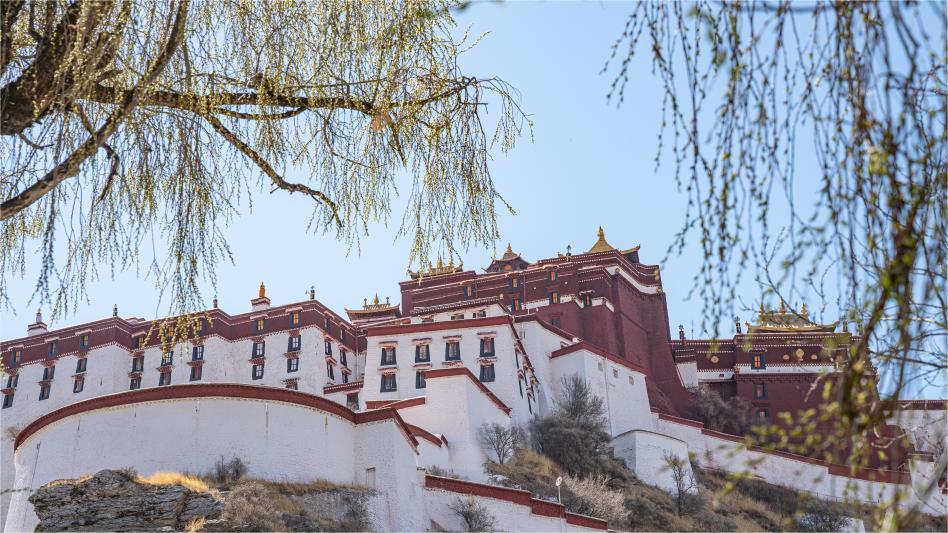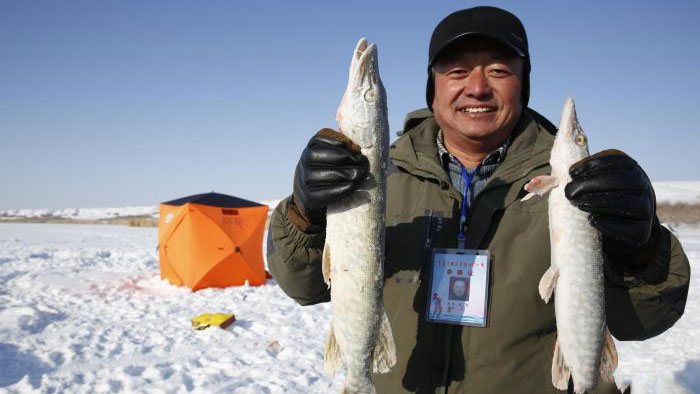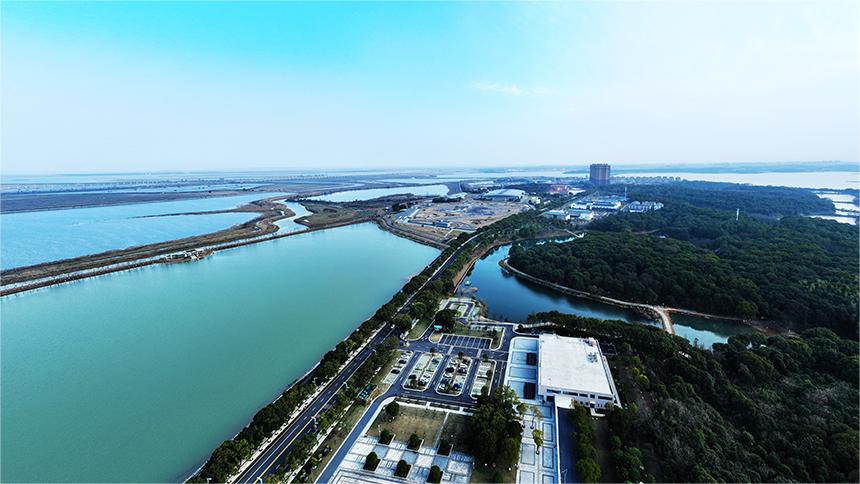Flower tours boost rural revitalization in SW China's Guizhou
Flower tours have become a new engine which fuels rural revitalization in southwest China's Guizhou Province.
In spring, a sea of vibrant rapeseed flowers, along with a crystal clear river, tea gardens, orchards, and traditional residential dwellings in Changqi village, which was built in the late Yuan Dynasty (1271-1368) or early Ming Dynasty (1368-1644), create a stunning vista for visitors.
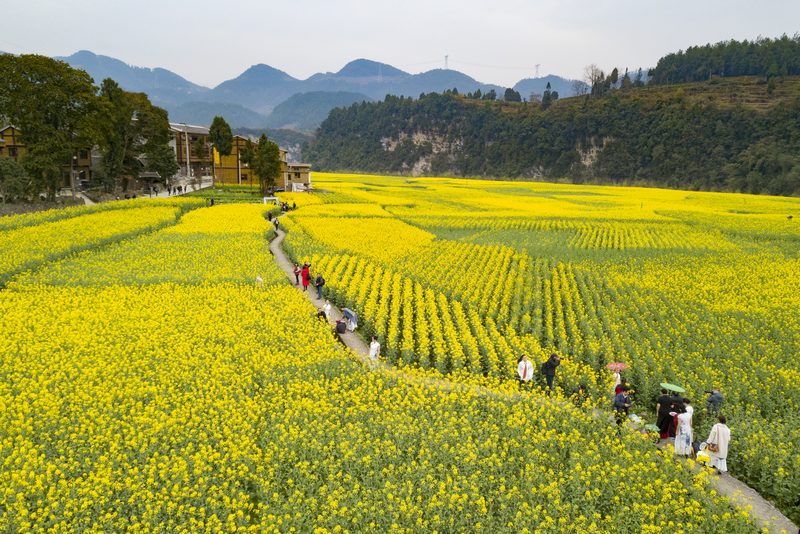
Tourists enjoy the view of rapeseed flowers in Changqi village, Fenggang county, Zunyi city, southwest China's Guizhou Province. (Photo/Tian Jinhong)
Zhu Hui, a tourist from the provincial capital Guiyang, lives in the ancient village in Xinjian township, Fenggang county, Zunyi for three to five days every spring.
The bright yellow rapeseed flowers create a picturesque scene and evoke a sense of nostalgia, allowing children who live in cities to get access to and know rural areas while appreciating the beauty of the countryside, Zhu said.
However, very few tourists visited the village in the past due to poor infrastructure and sanitation despite its enchanting scenery, pleasant climate, and profound cultural heritage.
Seizing the opportunities presented by Fenggang county's development of rural tourism, Xinjian neighborhood in Xinjian township began to develop tourism in 2015 by improving infrastructure and growing rape plants on a large scale.
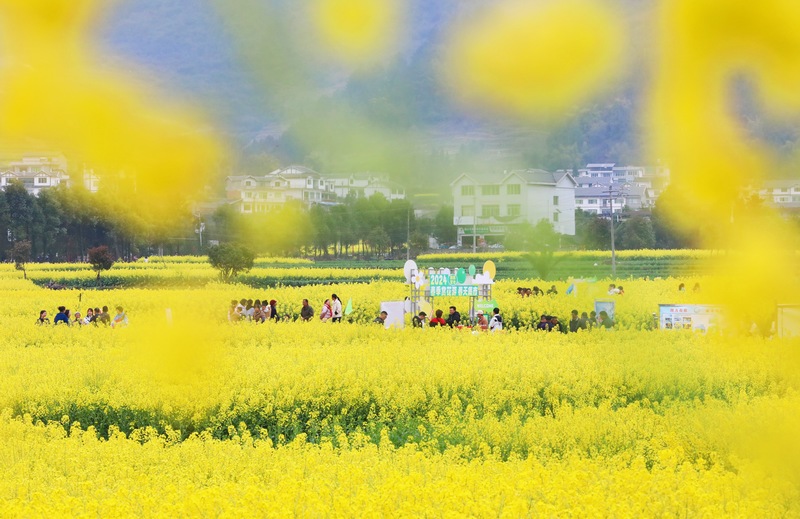
Tourists enjoy the view of rapeseed flowers in Guancang township, Tongzi county, Zunyi city, southwest China's Guizhou Province. (Photo/Chen Guiliang)
Focusing on themes like flowers, water, stone, farming and history, it then fully harnessed the advantages of Changqi village and launched folk cultural activities. It also rolled out tourism and cultural festival activities themed on the ancient village.
The ancient village has gradually become famous, captivating flocks of tourists.
In 2019, Changqi village was awarded the title of "national-level ethnic minority village." A year later, it became a national 3A scenic area, with B&B hotels, agritainment facilities, stores, and snack stands emerging, which allowed local people to earn by selling specialty agricultural products.
Deng Min, a villager who once worked in south China's Guangdong Province, returned to the village to run B&B and agritainment businesses. Deng's annual gross income approaches 300,000 yuan ($41,718).
In recent years, Fenggang county has realized the integrated development of the tea industry, forestry, agriculture, and tourism, with flower tours helping boost rural tourism.
A company based in a scenic area themed on tea and flowers in Yong'an township of the county benefits from flower tours. Chen Jiang, manager of the company, introduced a flower company from southwest China's Yunnan Province and invested over 10 million yuan to plant over 10 varieties of flowers, including roses, in 2023.
Chen's company has seen brisk business these months because of the stunning scenery of its tea gardens, where tourists can pick tea leaves and appreciate the beauty of flowers.
In 2023, Fenggang county welcomed 3.08 million tourist arrivals, up 10.1 percent, with total tourism revenue increasing 9.6 percent to 3 billion yuan.
Over the past years, Tongzi county in the city has integrated the development of flower tours with rural tourism.
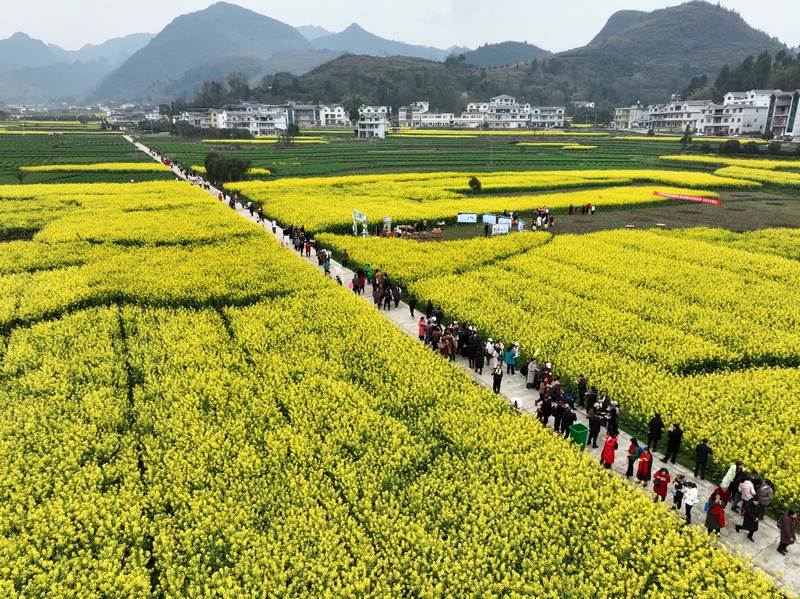
Tourists enjoy the view of rapeseed flowers in Guancang township, Tongzi county, Zunyi city, southwest China's Guizhou Province. (Photo/Wang Yin)
"Now is the perfect time to enjoy rapeseed flowers. Plum trees and peach trees will blossom later, which will attract many visitors and boost the sales of local specialty agricultural products like tea leaves and honey," said Lin Qi, an official of Guancang township, Tongzi county.
At a scenic area in Daping township of Renhuai, a county-level city overseen by Zunyi city, tourists roam around rapeseed flower fields covering over 1,000 mu (66.7 hectares) and stop to take photos from time to time.
The township has built rapeseed and rice demonstration bases by adopting a model that integrates enterprises, cooperatives and farmers in recent years. This year, it planted rape plants in an area spanning over 2,000 mu, helping over 1,000 farming households increase their incomes.
Photos
Related Stories
- China welcomes flower appreciation season
- Pear blossoms paint springtime hues in S China's Guangxi tea garden
- Spring splendor: Tulips in bloom
- In pics: Sea of rapeseed flowers usher in springtime in SE China's Xiamen
- In pics: rapeseed flowers in full bloom in village in SE China's Fujian
- China's Zhengzhou debuts at 2024 Philadelphia Flower Show
Copyright © 2024 People's Daily Online. All Rights Reserved.






